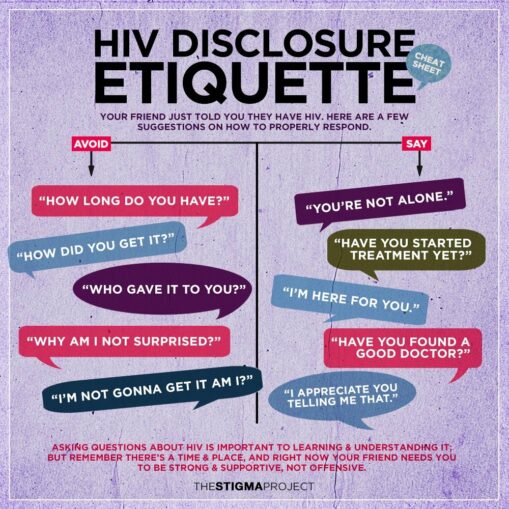Stop stigmatizing HIV!
 HIV. Three letters that spell dread for many. Even in the year 2024, people still feel that it’s a death sentence, decades after its discovery. For most people, this is not so. People can live on Human Immunodeficiency Virus antiretroviral medication for years, decades even.
HIV. Three letters that spell dread for many. Even in the year 2024, people still feel that it’s a death sentence, decades after its discovery. For most people, this is not so. People can live on Human Immunodeficiency Virus antiretroviral medication for years, decades even.
Today it is possible to have such a low viral count — that is, a low count of the virus that can be detected in someone’s blood — that they have no copies of the virus in their blood, breast milk, semen or vaginal fluids. They can have sex with someone, unprotected, and still not spread it. Now, after having struggled to help treat people with HIV, a medication called Cabenuva (cabotegravir/rilpivirine) can be taken as a long-acting injectable (LAI).
While in the beginning of the epidemic, it was primarily white gay men who were the face of HIV and AIDS, now both queer and non-queer people of color are the ones who have the most cases, due largely to a lack of comprehensive sexual and health education on HIV and the stigmas against queerness, sex work and HIV itself.
While in the 1980s, HIV was almost 100% fatal — a higher fatality rate than even Ebola or smallpox — nowadays, with the various types of medications, like protease inhibitors or nucleoside reverse transcriptase inhibitors, people can live “normal” lives by simply taking a pill or two in the morning, and then they can go about their day.
Of course, these medications are very expensive, but there are programs from both the government and drug manufacturers to get them into the hands of people who need them. The Ryan White CARE (Comprehensive AIDS Resource Emergency) Act — named after the late hemophiliac AIDS patient Ryan White — pays for medications for people who cannot get them any other way.
HIV still stigmatized
HIV is a very stigmatized disease, even now when it is known that the virus is not a divine punishment for queer, addicted or sex-working individuals. Even the state reinforces this stigma. In the Commonwealth of Pennsylvania, while there is no law specifically targeting non-sex workers with HIV or AIDS, people have been charged with reckless endangerment or attempted murder for not disclosing their HIV positive status. For full service sex workers, those who have sexual intercourse with their clientele, their job is already a crime. If a full service sex worker who has HIV has sex with their client and is arrested, they can be charged with a felony.
The push to criminalize HIV started in the 1980s, after unconfirmed reports that a French-Canadian flight attendant, Gaetan Dugas, purposely and knowingly infected gay and bisexual men with what was then called the “gay cancer” or the “gay plague.” There have been other similar stories among the sex work community. There were unconfirmed reports of full service sex workers also purposely having unprotected sex with clients.
These stories and others pushed state governments to pass laws that essentially criminalized HIV in a way that no other disease has been criminalized. People will point to HIV’s incurable status and the fact that it costs tens of thousands of dollars to treat it as the reason why people with HIV need to be punished so severely. However, there are other viruses that are permanent and can cause fatal disease. Hepatitis C virus — though curable — can cause liver failure and liver cancer, which can cause people to die.
The Human Papillomavirus (HPV) has strains that do not go away and can cause oral, anal and sexual organ cancers, which people die from. Even the SARS-CoV-2 virus — the virus that causes COVID-19 — can cause permanent lung damage or lung failure; it killed more people in its first year than even HIV did.
Should people disclose their HIV status if asked? That requires much thought on the part of the HIV- positive person. Even now, more than 40 years after its discovery, people with HIV are mistreated, brutalized and discriminated against due to their seroconversion status. To disclose this is a highly personal thing.
Racism’s impact on people with HIV
Sexuality and sex work status are not the only things impacting HIV status and disclosure. Racism also impacts it. All of these things mesh together to impact a Black or Brown person uniquely. Historically, people with HIV who were also non-white were sent to hospitals that were already subpar before the HIV epidemic began.
In 2013, white gay men accused Michael Johnson, a Black gay college athlete, of knowingly transmitting and exposing them to HIV. He was sentenced to 30 years in prison under Louisiana’s anti-HIV laws. His punishment was overturned. He pled guilty and was released from prison as part of a plea deal. But this episode shows that justice is definitely not meted out fairly, and very specific people are singled out for punishment. Due to racist stereotypes, Black queer people are unjustly viewed as being more promiscuous, therefore being more at risk of getting HIV and facing increased marginalization.
While the stigma has lessened since 1981 — when AIDS was first identified in people in the U.S. — queer people, non-white people and sex workers still carry the most stigma. Knowledge of the truth about HIV must be spread — and the stigma about the disease must be challenged and ultimately overcome, in order to achieve decriminalization of the disease in our lifetime.

